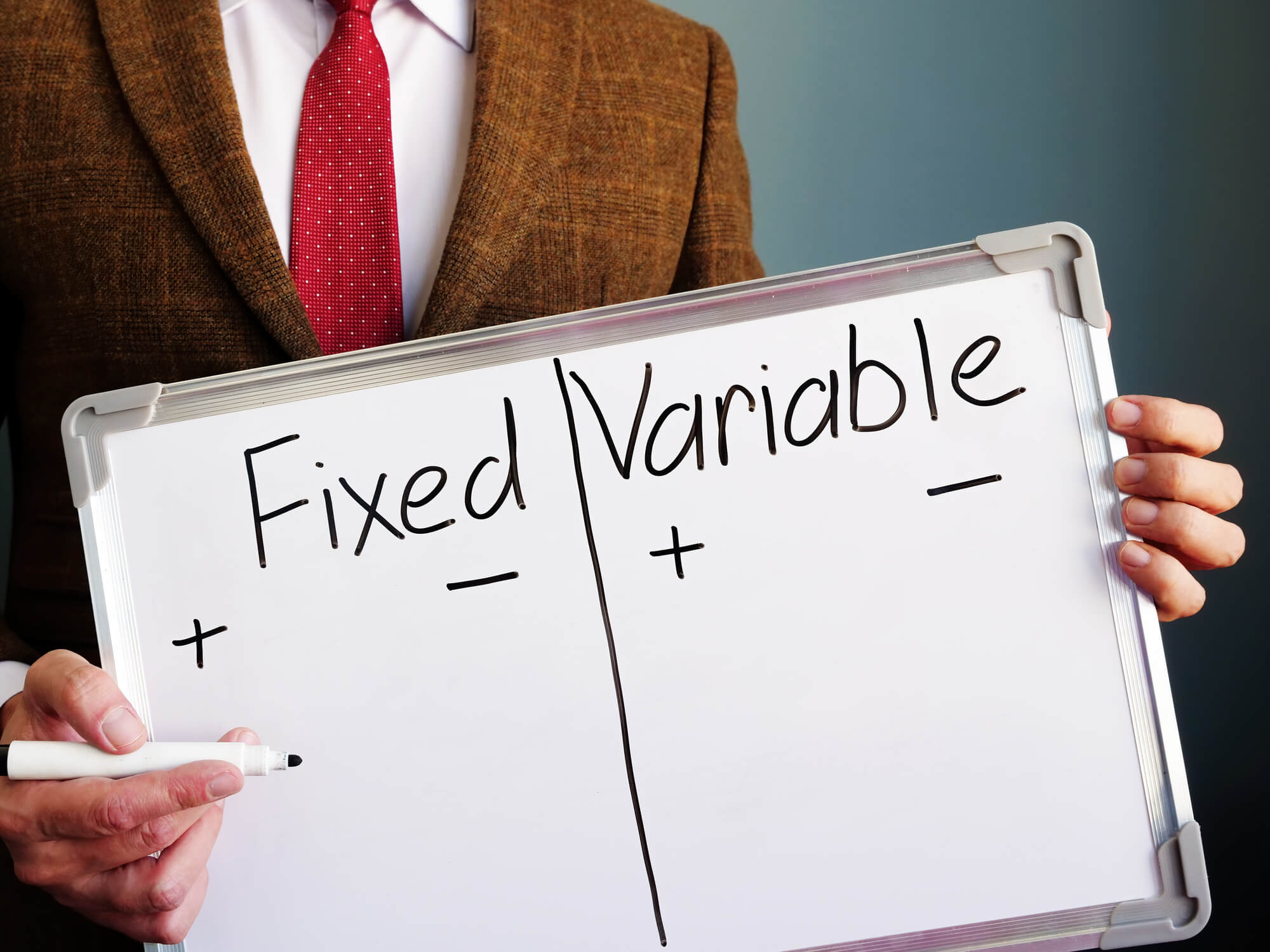When purchasing a home, most people opt for a mortgage loan. This type of credit is usually the first choice as the acquired property is committed as collateral for the payment guarantee. It is commonly known as “mortgage” housing. Sometimes, people also mortgage their home which is already owned outright to obtain financing at lower rates or for significant loan amounts compared to personal or consumer loans. The question that arises is whether to opt for a fixed or variable loan. While it may seem like a gamble, with the right information, the decision will probably come down to personal preference.

Mortgage Loans at Variable Interest in Stable Economies
Almost all mortgage loans in the US, 98%, are contracted at variable interest rates (see the article on EURIBOR ). This interest is calculated every six months or a year, considering the EURIBOR of that period and a small amount added (For example, EURIBOR + 0.5).
With a fixed-rate contract, the home loan rate and installment you make every month will remain the equivalent for the term of your home loan. With a variable rate contract, in any case, the home loan rate will change with the prime lending rate as set by your moneylender.
In contexts of low-interest rates and low inflation, it is not even usual to consider making mortgages at fixed interest since they tend to have a much higher interest rate than the variables. Therefore, in economies that are assumed and expect stable medium and long term, which is the duration of mortgages, we will always opt for mortgage loans at variable interest.

When Inflation Rises
But what happens when the economy suffers a more confusing period? When the prices (inflation) rise more than the account, the Central Banks increase the interest rates to stop the consumption. In other words, the money is more expensive, so the investors do not move their money as much if the simple deposits already offer acceptable interest rates. There are also repercussions in variable-rate mortgages because of increases when the time comes for their semi-annual or annual review. As seen in the news or other media sources, many people have seen their mortgage payments rise to several hundred dollars, depending on the case, in recent years.
The question arises: do I opt for the fixed rate and eliminate the uncertainties?
Advantages and Disadvantages of Fixed-Rate Mortgages
Payment stability is the main advantage of fixed interest in mortgages. We will not be affected by rate increases, although this is a double-edged sword because when the rates fall again, we will not benefit from that drop, and we will be paying the price above the market.
Also, the interest differentiates between variable-rate mortgages (average of 4% APR for amortization in 25 years) and fixed-rate mortgages (average of 6% for 25 years), which gives us a margin that, despite the increases in types, we continue to pay less than in a fixed-rate loan.
In any case, if the economy is stable, as in Europe, the maxim will be that everything that goes up comes down. And in credits, as long-term, as they are now, the fees are lower, and the increases are less noticeable.

Mortgages at Mixed Interest
Another product offered by the entities is the mixed-rate mortgage. There is usually a fixed term (for example, five years at the beginning or the end of the loan), and the rest is varied. It will be a good product if one gets into debt in the context of uncertainty and continuous rate hikes. Because of this type of loan, we can be patient for five years and wait until the interest varies.
Conclusion Regarding Which Type of Mortgage We Are Most Interested
In short, fixed interest rates are more expensive and usually have a shorter repayment term, which requires more excellent solvency throughout the loan. In return, we will not be affected by the rise in rates, which can be overwhelming at certain times due to the increase in our fees.
In any case, the variable rates are recommended since they are cheaper and allow a more extended amortization period, with which the quotas will be lower and more affordable. Given the variations, we can always think we will find rising and falling moments in the long term.
 About Complete Controller® – America’s Bookkeeping Experts Complete Controller is the Nation’s Leader in virtual bookkeeping, providing service to businesses and households alike. Utilizing Complete Controller’s technology, clients gain access to a cloud platform where their QuickBooks™️ file, critical financial documents, and back-office tools are hosted in an efficient SSO environment. Complete Controller’s team of certified US-based accounting professionals provide bookkeeping, record storage, performance reporting, and controller services including training, cash-flow management, budgeting and forecasting, process and controls advisement, and bill-pay. With flat-rate service plans, Complete Controller is the most cost-effective expert accounting solution for business, family-office, trusts, and households of any size or complexity.
About Complete Controller® – America’s Bookkeeping Experts Complete Controller is the Nation’s Leader in virtual bookkeeping, providing service to businesses and households alike. Utilizing Complete Controller’s technology, clients gain access to a cloud platform where their QuickBooks™️ file, critical financial documents, and back-office tools are hosted in an efficient SSO environment. Complete Controller’s team of certified US-based accounting professionals provide bookkeeping, record storage, performance reporting, and controller services including training, cash-flow management, budgeting and forecasting, process and controls advisement, and bill-pay. With flat-rate service plans, Complete Controller is the most cost-effective expert accounting solution for business, family-office, trusts, and households of any size or complexity.




